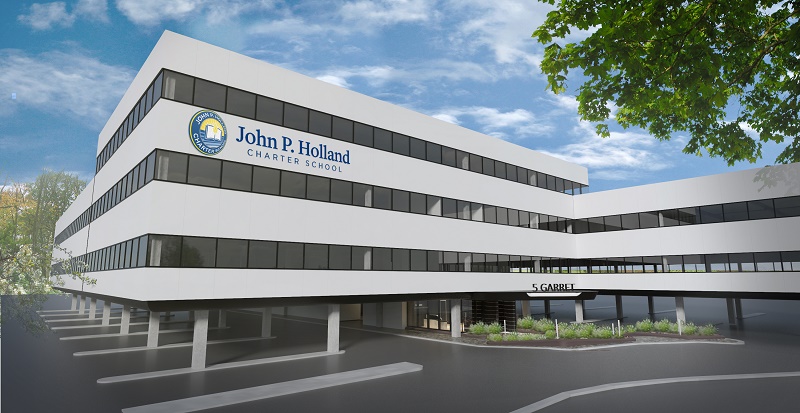It had been home to a single tenant for its entire 25-year existence, making 5 Garret Mountain Plaza a durable, stable piece of Mountain Development Corp.’s New Jersey office portfolio.
Even so, Michael Seeve knows there’s another side to that story.
“The thing that people love about single tenants is that you’re all set for a while,” said Seeve, the president of Mountain Development Corp., or MDC. “And the thing that people don’t like about single tenants is that when the leases mature, you may have to start from scratch.”

For the developer and its leasing team, the deal will bring new stability to the three-story building, thanks to a creative approach that lured a nontraditional user.
“It’s one of the very few buildings that’s been leased through several transitions, through Mountain Development’s efforts, to one tenant every time,” said David Simson, a vice chairman with Newmark Knight Frank. “And that will continue now for decades to follow.”
In an announcement last summer, Seeve’s firm and NKF detailed a proposal to overhaul 5 Garret Mountain, seeking to land a sole tenant or a lead tenant of at least 50,000 square feet. That plan included the addition of new lifestyle amenities, but MDC opted to begin by demolishing the interior space and exposing the property’s 40,000-square-foot floorplates.
According to Simson, doing so ensured “that it would show better” and attract users from a broader range of industries. That group included health care and education, which he said were “two of the shining industries within the New Jersey market” over the past year.
“He gets all the credit for that insight to do that and create that opportunity,” said Simson, the chief operating officer of NKF’s New Jersey office, referring to Seeve. “If we would have started to build the amenities, we think we would have geared ourselves too much to an office user.”
Soon thereafter, officials with John P. Holland expressed interest in the space, Seeve recalled. They were in search of a brand new environment for their students and “were intrigued by the potential of our property,” he said, thanks in part to how MDC brought it to market.
“When we demolished (the interior), what you get is a building with a nice ceiling height, with nice views on four sides, with a really efficient core configuration with plenty of parking and great accessibility,” Seeve said. “And even though it wasn’t a conventional location from their standpoint for the school, they were enthused about the location.
“From our standpoint, we were intrigued about making this building work for a large but very different kind of user.”
He noted that “we really enjoyed working with the people at the school and vice versa,” but pointed to the inherent complexity of the transaction, from design and entitlements to structuring a deal that works for the school. That’s not to mention “making it all happen in a timeline so that they could move in before the first of the school year.”
“It was kind of like a renaissance real estate deal,” Seeve said. “It touched on a little bit of everything, but we thought that David and our team and the team at the school and their professionals were just really good at working together and finding creative ways to solve everything. And the end product, I think, is going to be greater than anyone could have imagined.”
John P. Holland, which teaches kindergarten through eighth grade, now has a new long-term home and space for future growth. Seeve also touted the property’s campus-like setting, which will allow for the addition of a covered playground and easy access for pick-up and drop-off.
Seeve and Simson noted that construction at the site, an educational facility, was allowed to continue throughout the state’s COVID-19 emergency and is on track to finish by the fall.
“There’s nothing more essential than schooling for kindergarten through eighth grade,” Simson said. “So give the governor credit, too, because we can go full speed ahead to accommodate and meet our obligations, which will be met with no problem for the next school year.”
Seeve said the charter school “is very complementary to the rest of our portfolio” and “takes us out of the normal cycle of shorter-term lease rollover that you’d normally have in a building.” And while the deal was in fact complex, he believes that past experience with traditional office tenants helped guide the way for an atypical user.
“I think a big part of the office space business has been office landlords really collaborating with tenants,” he said. “You sign big leases because you’re making the buildings meet the needs of tenants or you’re doing interesting things. It’s not just four walls and a ceiling — it’s branding, it’s creating an environment in the space, it’s understanding the needs of the tenant, so that training sort of lent itself perfectly to this transaction.
“We were ready to engage with the school, we were ready to welcome their professionals into the fold to help them understand the building to help respond to their needs.

